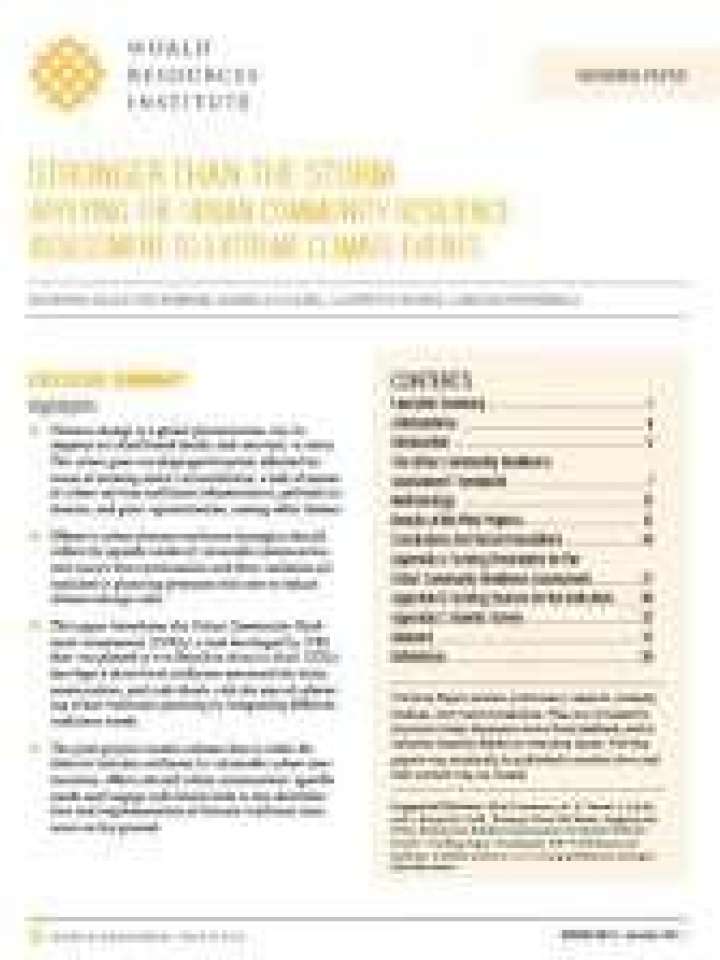Stronger than the storm: applying the urban community resilience assessment to extreme climate events
Climate change is a global phenomenon, but the impacts are distributed locally and unevenly in cities. The urban poor are the most affected by climate change and are more likely to live in areas that lack sufficient infrastructure to respond to climate risks.
WRI has developed the Urban Community Resilience Assessment (UCRA), a tool for city planners to measure differentiated needs for climate resilience. Measuring how communities and individuals have responded to potential climate risks can help identify needs for resilience and inform effective urban resilience planning. UCRA was piloted in low-income and vulnerable communities in two Brazilian cities, Porto Alegre and Rio de Janeiro.
This paper describes the pilot project results, insights and the potential for UCRA to be applied in other cities. A forthcoming paper will show how UCRA was applied in Surat, India and Semarang, Indonesia.
Explore further
